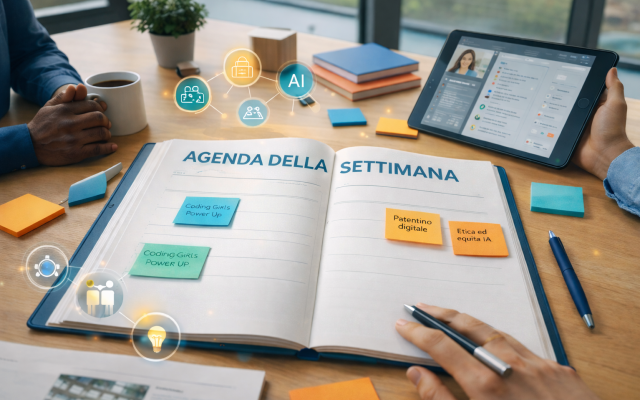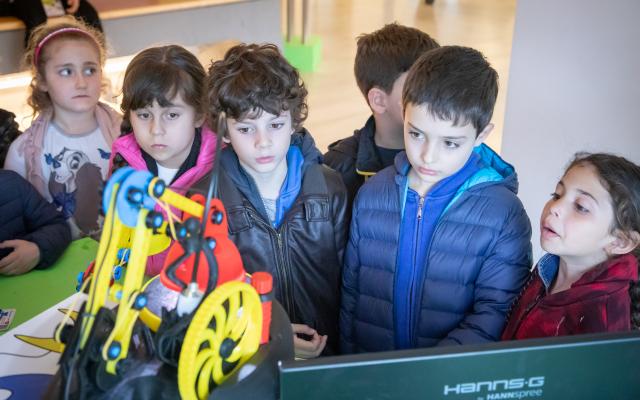EDU4AI: Silvia Larghi presents her didactic project and educational challenge
Silvia Larghi is a computer engineer and teaches technology at a first-degree secondary school. She has recently also been holding teacher training and educational robotics courses. And she is very interested in the possibility of integrating artificial intelligence (AI) topics into regular didactic activities. This is why she participated in European Project Edu4AI - Artificial Intelligence and Machine Learning to Foster 21st Century Skills in Secondary Education (Erasmus+ Programme), coordinated in Italy by the Fondazione Mondo Digitale.
The objective of the project is to develop a good practice for AI education at school, to guide students to a conscientious and responsible use of data and technology, with experimental, experiential and collaborative activities.
"EDU4AI was a unique opportunity for me. I was able to compare notes with professors from other countries and understand how they work abroad. Training and networking with other teachers have a great added value for didactics that each of us can bring back to our own classrooms,” explains Silvia.
“Last year, we participated in an introductory training course on AI. So, we had the opportunity to develop a didactic proposal integrating AI. And I already presented the activity in two sessions, two foreign and Italian colleagues.”
Silvia has developed a self-driving robot. “Usually, this is a topic that awes and attracts students. I built the robot with common school modules and developed the guidelines necessary for students to build their own, making the project replicable in other schools, too. In addition to building the vehicle, students must also work on coding, based on AI. Thanks to Google’s Teachable Machine, I programmed the robot to recognise road signs through a camera that recognises stop, yield, and turn left/right signs. How does it learn to do this? By repeatedly interpreting road signs.”
Do you think students will be able to develop their own robot?
“Definitely,” replies Silvia. “There are many platforms and applications that can help us to present AI in an easy and accessible manner. Moreover, artificial intelligence is an issue that is taking hold very rapidly and concerns our daily lives. We use vocal assistants, chatbots and purchase assistants.”
“The Challenges of AI are technological, social and also ethical. As mentioned, AI learns through examples. Therefore, there is an ethics of training that although complex, stimulates many students. I believe that it is fundamental for students to become aware of the uses and consequences of their devices.”
"EDU4AI ha rappresentato per me un’occasione unica. Confrontandoci con docenti di altre nazionalità, abbiamo potuto renderci conto di come si lavora negli altri paesi. La formazione e lo scambio con altri docenti è un grande valore aggiunto alla didattica che poi ciascuno di noi porta avanti con le proprie classi", racconta Silvia.





